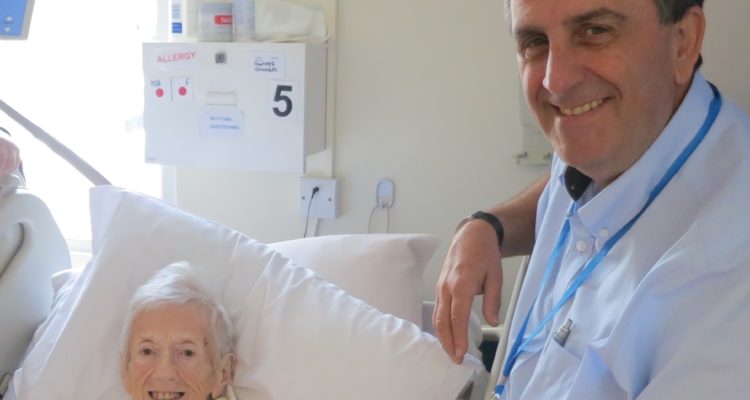How charities must use business skills to achieve their goals.
Eamonn O’Neal, our chief executive, highlights how charities must use business skills to achieve their goals.

It’s the third-sector paradox. Charities are often regarded as fuzzy, philanthropic organisations which function in a kind and generous manner. When facing outwards, the market for love and benevolence is at the forefront of activity yet within the organisation, sound business principles and strategic thinking provide the foundation for sustainability and growth.
A hospice serves the community in a unique way, offering outstanding care to patient and families during their most vulnerable time. The care is delivered professionally with compassion and respect.
But that does not happen by chance. We have talented people with finely-honed business skills in order that the organisation remains relevant. That’s no different to any other business, regardless of sector.
What we also have to do is raise money. Whilst St Ann’s is supported by some NHS CCG contracts, we must raise around £16,000 every day in order to provide our services. We therefore rely heavily on fundraising, generous donations and legacies,
American entrepreneur, Dan Pallotta, tells us that we should change the way we think about not-for-profit organisations. His view is that the generally accepted approach to fundraising is more cap-in-hand than ‘in your face’.
It is of course logical and sensible to invest in fundraising activity but here in the UK, culturally, that investment is often seen as excessive or as an unnecessary cost. The generous public, quite rightly, expect the highest percentage possible is going to deliver the services to which they’re contributing.
But we must face those cost challenges and nurture the bold ambition which will support strategic development – something we are embracing at St Ann’s. We are currently recruiting to a brand new executive position – Director of Finance and Business Development. Whilst not necessarily unusual in some sectors, it is a new direction for a hospice. As well as having all the traditional skills and experience of FD, the successful candidate will be a visionary, a collaborative team member and an outstanding leader. It will only work if the individual’s ambition complements the required skills.
This move is pivotal in allowing us to deliver our vision and like many businesses, we need to think even more creatively about innovative ways to develop the way we deliver specialist palliative care.
Some see private health as one of the ways forward. If patients can choose to go private for maternity care and acute medical activity throughout their lives, why shouldn’t they have that choice when end of life care is required? In this respect, a cautionary tale emerges from America, and precedes Trump’s election.
In the USA, hospice care has seen a dramatic change and growth over the past 15 years. From a collection of small, religious-affiliated entities into a multi-billion dollar industry that has quadrupled since 2000. Statistics from private medical insurance businesses suggest that around half the people insured with them who die, die in a hospice. But in the last 10 years the US Government has accused almost all the for-profit hospices of billing fraud. Over a three year period, 55 per cent of all US hospices were cited for violations of one type or another, many directly related to care.
So whilst we need imaginative, fluid thinking to develop resilient future-proofing, not all business growth models are appropriate or ethical. Profit, in the traditional sense is not the driving force. The definition of profit is different for us. Our profit is the amount and quality of care we provide for patients and families. That is both our currency and our profit.
Hospices are no longer the quaint cottage hospital type of building at the end of a leafy country lane. We are leaders in a sophisticated, specialist field but we’re fighting tooth and nail to survive, thrive and remain relevant. And the fight begins with good business behaviours which will enhance integrity and reputation, leading to even more opportunities to sustain the virtuous circle.
Against the backdrop of devolution, intelligent collaboration across our sector is crucial. We have created the Greater Manchester Strategic Hospice Network so all seven adult hospices can tackle the challenges and influence transformation in a coherently structured way.
Responding to change and doing so in a timely manner is more important than ever. Leading instead of following; being active not passive; knowing when to wait and when to act. These are the elements we can all control, while the external landscapes continue to change, and, no matter which sector we are part of, that will be key to ensuring our businesses can flourish for years to come
